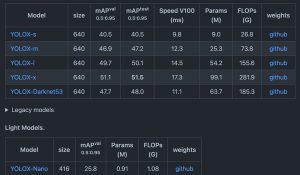Continuing to forge paths to translate their AI research into business applications, Tokyo University-based AI venture “2WINS” is at the forefront. This interview series features a dialogue between Ryo Tetsu Ogawa, the Co-CEO of 2WINS, and Kazuki Kyakuno, the Executive Director of Axell. In the first part, we explored the background and journey of 2WINS. The second part delved into their respective development philosophies and the advancements AI has brought in recent years. In this final part, we discuss the current state and future of AI and digital transformation (DX).
The Current State of AI DX According to Developers
Ryo Tetsu Ogawa (henceforth: Ogawa): Recently, regarding AI surrounding DX, what is the situation on the ground at your company, which also handles products in this field?
Kazuki Kyakuno (henceforth: Kyakuno): Since our company started offering the DX application “ailia DX Insight / Axell’s AI DX app”, we’ve been hearing from our customers that there is a pervasive trend across domestic companies to increase operational efficiency through AI DX. However, it seems most are in the phase of first wanting to understand how to integrate and utilize AI DX in their workflows. In other words, they aim to raise their literacy on AI and DX within their companies. More than directly improving operations, the prevalent inquiries are about assessing how AI can intervene in their workflows.
Ogawa: Larger companies and organizations tend to have well-managed workflows. How do you think AI DX will be integrated into businesses in the future?
Kyakuno: Naturally, it’s difficult to change all workflows at once. Initially, I think AI DX will be partially adopted in areas where there is a high workload after conducting factor analysis. I don’t think it will be long before people start noticing that AI is increasingly being incorporated into their workflows.
Ogawa: What are the particularly high-demand areas in the business scene?
Kyakuno: One notable area is “transcription”. This includes creating meeting minutes and converting conversations with customers into text data. A while ago, this work was outsourced to internal or specialized companies and done manually, but now AI performs these tasks with high accuracy and in real-time. Currently, we are improving workflows by combining several AI applications and tools, starting with transcription functionality, which AI excels at. Our company develops multiple such “parts” and offers proposals for incorporating them in the optimal way into our customers’ workflows. In the future, we envision a service where customers can independently combine these parts. It’s possible that in the future, AI will be able to take into account each organization’s workflow and propose the optimal combination of tools.

Ogawa: It seems like AI has the potential to adapt to various fields such as OCR, meeting minutes, and internal information search. At our company, we also offer AI DX tools packaged as a service for enterprises. Additionally, we focus on supporting companies from the stage of identifying parts of their workflow that can be delegated to AI, all the way through to the development necessary for this integration. However, even if companies want to use LLMs (Large Language Models), many cases lack the necessary databases and are not ready for implementation. Thus, before introducing the latest AI, it’s crucial to first establish the foundation, like organizing existing databases and defining internal knowledge sharing methods.
Kyakuno: Ensuring a prepared environment before welcoming cutting-edge AI is indeed crucial.
Ogawa: It may sound uninspiring to say so (laughs). But even without a perfect foundation, tools that allow AI to be used without realizing it’s AI might solve these issues. The internet is a good example, where children can use it immediately without any prior preparation. If 2WINS can provide such convenient tools that are essentially AI inside, it could elevate us to the next stage.
Kyakuno: We are on the exact same path (laughs). Initially, we focused on business development aimed at engineers with our “ailia SDK,” one of the world’s fastest inference engines. However, to move forward, we must provide tools that can be used immediately even by those who know nothing about AI.
Ogawa: Exactly. I hope we can pave the way together (laughs).
Unexpected Obstacles in Promoting AI x DX in Japan
Ogawa: Often, companies want AI to manage their extensive internal databases, but the databases are not unified, or they haven’t organized things before introducing AI, slowing down the AI DX promotion or leading to abandoning the implementation altogether.
Kyakuno: The more individualized the business processes, the higher the hurdles for AI DX implementation. Once digitized, AI can handle data smoothly, but if documents are managed on paper or require stamps, AI cannot intervene. Our company also offers suggestions for parts of the workflow where AI DX can be implemented after reviewing our clients’ workflows, even if we don’t provide full-scale business improvement consulting.
Ogawa: Including improving business processes before AI implementation, there will likely be many successful AI DX cases in the future.
Kyakuno: Yes, as these cases are widely shared through media, they will likely spread throughout the country. From an infrastructure perspective, we are seeing more opportunities to witness autonomous driving experiments and other advanced technologies in the media.
Ogawa: Actually, I am currently researching “cooperative autonomous driving” (which involves communication with other devices on the road for higher safety) as part of my graduate school activities. Technically, I feel that over 90% of the research on AI-based autonomous driving has been done. It was a dream during my elementary school years, and now it’s on the verge of realization. However, there are legal and technical barriers to overcome. In autonomous driving research, image information processing is crucial. With the advancement of “multimodal AI” (AI that processes multiple data types like images, videos, and sensor information) along with LLMs, if we can smoothly process inputs from images, we can accurately read pedestrian movements even on rainy days, leading to safer autonomous driving and getting closer to a perfect score.

Kyakuno: Traditional AI could only make judgments from a single type of data, such as images, text, or audio. However, the strength of multimodal AI lies in its ability to learn from and integrate various types of information to derive results. This capability holds promise not only for autonomous driving but also for a variety of other applications.
Ogawa: Moving from making decisions based on a single type of information to making decisions based on comprehensive factors makes AI feel even closer to human capabilities.
Kyakuno: As AI evolves comprehensively, we might reach a point in the near future where we can build a transportation network that is safer than human-driven systems.
Ogawa: Personally, I’m also looking forward to innovations born from the integration of AI with other fields, such as AI and robotics.
Kyakuno: Even looking at generative AI alone, the pace of evolution is incredibly fast. It’s conceivable that AI could even start developing other AIs.
Ogawa: We might see a future where AI, working tirelessly without complaints, supports corporate DX (laughs).

Photo on the right
Ryuto Ogawa
Co-CEO and Representative Director at 2WINS
Graduate of the Department of Mechanical and Intelligent Systems Engineering, Faculty of Engineering, University of Tokyo
First-year master’s student in Intelligent Robotics at the Graduate School of Information Science and Technology, University of Tokyo
Engaged in research on cooperative autonomous driving in academia. Representative director of the non-profit Student Web3 Association. Co-Founder and current Secretary-General of Hongo Web3 Valley, the largest blockchain engineering group at the University of Tokyo. As the representative, he has organized Japan’s largest student hackathon and the Web3 Summit in collaboration with government agencies and corporations. Awarded as the top 1% of outstanding graduates in GCI2023, a course by Matsuo Lab at the University of Tokyo, focusing on data science for business development. Has two years of experience in business consulting for SMEs as a support officer for a certified support organization. Works on AI development from research and development to social implementation. In 2022, he co-founded 2WINS Inc. with Co-CEO Ryota Yoshimura.
Photo on the left
Kazuki Kyakuno
Executive Managing Director and General Manager of the Business Development Group at Axell Corporation
CTO of ax Inc., Guest Associate Professor at Tsukuba University
Earned a Ph.D. by researching the hardware implementation of various elementary functions at Tsukuba University Graduate School. After joining Axell Corporation, he worked on developing compression algorithms for video and audio for the amusement market. Planned and developed the unique AI framework, ailia SDK. Founded ax Inc., specializing in AI, and serves as its CTO. He is currently focused on R&D and commercialization in cutting-edge technology fields.
Link
2WINS Inc.
https://www.2wins.ai
For inquiries about AI development, products, and services, please contact:
https://ailia.ai



